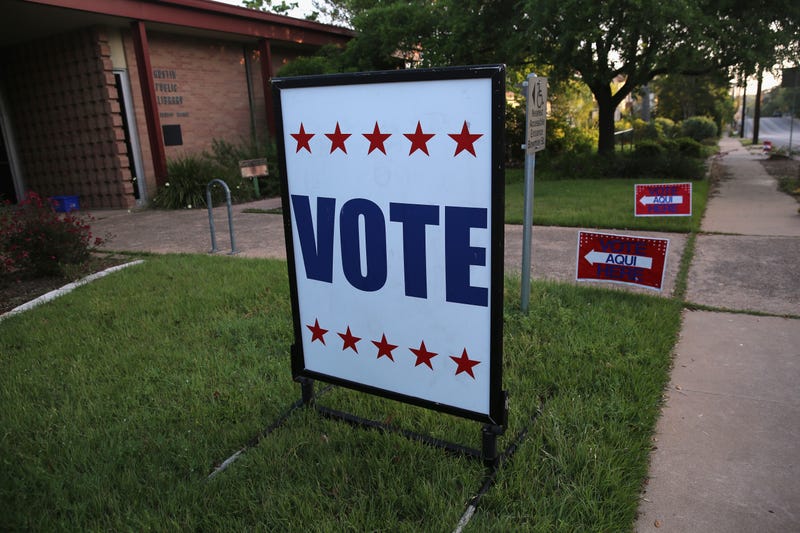
AUSTIN (Talk1370.com) -- Austin City Council members on Tuesday finalized language for a number of items that will go before voters on May 1, including potentially reinstating the city's public camping ban and a proposal to create a "strong mayor" form of government.
A total of eight propositions will go before voters, including seven items that were driven by citizen-initiated petitions.
Proposition A would amend the city charter to create a binding arbitration process for the Austin Firefighters Association in contract negotiations with the City of Austin, if those negotiations reach an impasse.
Shall the City Charter be amended to give the Austin Firefighters Association, Local 975 of the International Association of Fire Fighters, the authority to require the City to participate in binding arbitration of all issues in dispute with the Association if the City and the Association reach impasse in collective bargaining negotiations?
Proposition B, which was supported by Save Austin Now, would enact an ordinance that would reinstate the city's ban on public camping, reinstate the prohibition on sitting or lying on public sidewalks or sleeping outdoors in the downtown area and extend it to the University of Texas campus and surrounding area, and ban panhandling and aggressive solicitation in public areas citywide between 7 p.m. and 7 a.m. daily.
Shall an ordinance be adopted that would create a criminal offense and a penalty for anyone sitting or lying down on a public sidewalk or sleeping outdoors in and near the Downtown area and the area around the University of Texas campus; create a criminal offense and penalty for solicitation, defined as requesting money or another thing of value, at specific hours and locations or for solicitation in a public area that is deemed aggressive in manner; create a criminal offense and penalty for anyone camping in any public area not designated by the Parks and Recreation Department?
Proposition C, which was spearheaded by District 4 council member Greg Casar, would amend the city charter to allow for City Council to, by future ordinance, change the Director of Police Oversight. Currently, the Director of Police Oversight reports to the City Manager.
Shall the city charter be amended to allow for a Director of Police Oversight to be appointed or removed in a manner established by City Council ordinance, with duties that include the responsibility to ensure transparency and accountability as it relates to policing?
The remaining propositions are all charter amendments stemming from a petition from Austinites for Progressive Reform.
Proposition D would amend the city charter to move the mayoral election to coincide with presidential election years, setting up a transitional two-year term in 2022 before resuming a four-year term in 2024.
Shall the City Charter be amended to transition the election for mayor from gubernatorial election years to presidential election years, providing that the mayor elected in 2022 will serve a 2-year term and then mayoral elections will occur on the same date as presidential elections starting in 2024?
Proposition E would amend the city charter to use ranked choice voting for all city offices, in an effort to eliminate runoff elections which generally see lower turnout. If voters approve the proposition, changes in state law would be needed before ranked choice voting could actually be used in city elections.
Shall the City Charter be amended to provide for the use of ranked choice voting in city elections, if such voting is permitted by state law?
Proposition F would amend the city charter to change the city's governing style from the current "council-manager" format to a "strong mayor-council" format, in which the city manager position would be eliminated and the elected mayor would act as the city's chief executive, responsible for more than 14,000 employees and the $4.2 billion annual budget. The mayor would no longer vote as a member of the council, and would not be able to introduce legislation, but would gain the ability to veto council actions; council would be able to override a mayoral veto with a supermajority vote.
Shall the City Charter be amended to change the form of city government from ‘council-manager’ to ‘strong mayor-council,’ which will eliminate the position of professional city manager and designate an elected mayor as the chief administrative and executive officer of the city with veto power over all legislation which includes the budget; and with sole authority to hire and fire most department heads and direct staff; and with no articulated or stated charter authority to require the mayor to implement Council decisions.
Proposition G would amend the city charter to add an 11th City Council district and realign the existing city council districts accordingly. Assuming that Proposition F passes, it would keep the council at its current 11 members; if Proposition F fails, it would add a 12th vote to the dais.
Shall the City Charter be amended to provide for an additional geographic council district which will result in 11 council members elected from single member districts?
Finally, Proposition H would amend the city charter to adopt a voluntary publicly-funded campaign finance program nicknamed "Democracy Dollars" that would provide registered voters $25 vouchers to contribute to candidates of their choice in the mayoral and council elections. Each candidate would need to agree to certain restrictions and guidelines in order to receive the funding.
Shall the City Charter be amended to adopt a public campaign finance program, which requires the city clerk to provide up to two $25 vouchers to every registered voter who may contribute them to candidates for city office who meet the program requirements?
Under the state election calendar, voters must be registered to vote by April 1 in order to cast a ballot in the election. Early voting will begin on April 19 and run through April 27, with Election Day on Saturday, May 1.
